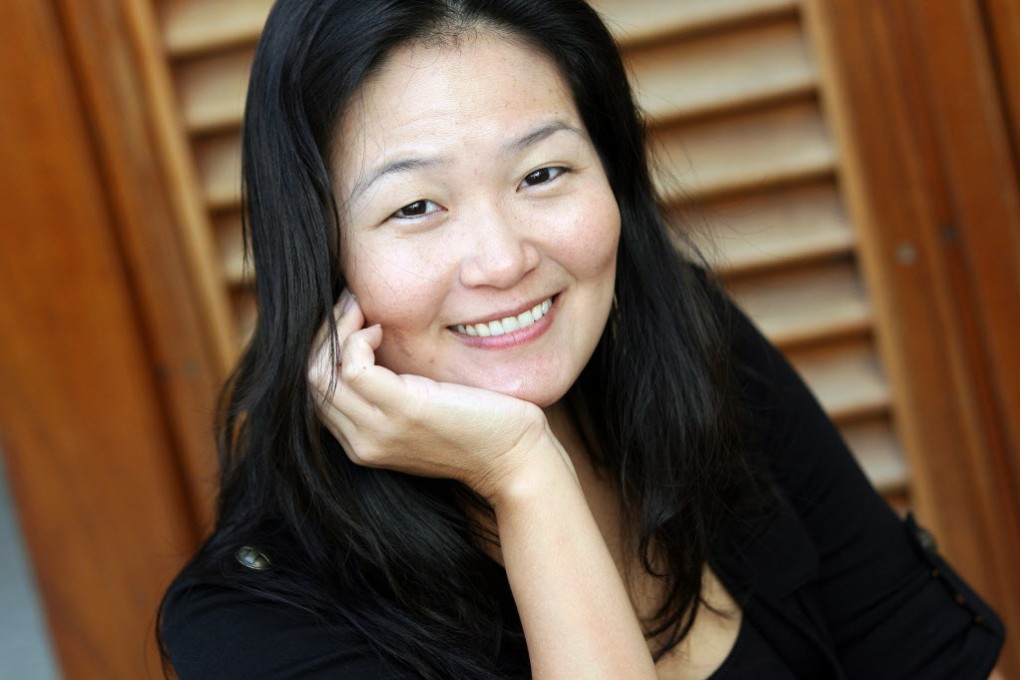Writing by numbers
Janice Lee's first novel, The Piano Teacher, is an international best seller with a long list of rave reviews. In a 2009 interview, the Hong Kong-born mother of four tells Daniel Jeffreys that you don't always have to stick to what you know to become a literary sensation.



Imagine a fertile field in Tuscany full of glossy olive trees and ripening grapes. Every day the sun shines, interrupted only by enough rain to ensure a bumper crop. The land is tilled by a gentle hand, a farmer who protects his soil as he nurtures the crop. This is truly God's field, a lucky field. This field is Janice Lee. Slim and sleek, with black hair that shines as it makes serpentine curves down the back of her cashmere sweater, she is the mother of four healthy children, the wife of a banker - who still has his job - and a graduate of private schools, Harvard University, New York's Hunter College and Elle magazine. And now she is the author of a novel - her first - that is generating a rare buzz: think Dan Brown's The Da Vinci Code with a gorgeous seductress instead of an albino monk. Janice Lee is truly a corner of this planet where good fortune is at home.
'I have wanted to be a writer since I was eight,' says Lee, balancing a cup of steaming coffee on her knee in a Repulse Bay cafe. 'I was the nerdiest child and I wrote a lot. I wrote in college about people who were like myself. I think it was good but it wasn't novel-type work.'
Not then, now is different, however. Now is The Piano Teacher: a Hong Kong-based novel set in two years, 1941 and 1952; a romance that has been sold to publishers in 20 countries and will appear in 18 languages. The achievement is remarkable. Most first novels never get published. Those that do are often like roses that bloom before the last frost, fragile specimens that die a quick death. But not The Piano Teacher. Last month, the book was given kind reviews by The New York Times, The New Yorker, The Washington Post, Oprah Magazine, American Elle, People Magazine, The Wall Street Journal, US Marie Claire, Good Housekeeping, the Chicago Tribune and the San Francisco Chronicle. This month's Vogue recommends the book and it received starred reviews from Publisher's Weekly and Library Journal, which guarantee Lee's book will be ordered by independent book stores and libraries across the United States. And as of writing this, it is at No 11 on The New York Times' best-seller list. The book is either very good (it is reviewed in the books section of today's The Review) or Lee's publishers have done a masterful job of marketing.
The truth probably lies somewhere in between. The novel is enjoyable enough but, more importantly, it has all the elements of a cinematic blockbuster. There's Trudy Liang, a beautiful Eurasian strumpet who flings herself at one Will Truesdale. A new arrival in early 1940s Hong Kong, he falls for Liang just before the Japanese invade. Storm clouds gather and Trudy's strategy for self-preservation breaks Truesdale's heart and spirit. Eleven years later, the damaged Truesdale encounters Claire Pendleton. The piano teacher of the book's title, she is a pale English flower ready to be transformed into a volcano by Hong Kong's heat and Truesdale's stiff upper lip. While Truesdale adulterously explores Pendleton's poplin underwear - she has some poor cipher of a husband who lurks in the corners at cocktail parties on The Peak - the piano teacher delves into his past and filches expensive keepsakes from her employers, the odious Chen family. One can imagine Zhang Ziyi reading the book and immediately calling her agent, demanding to be given the role of Trudy, who appears to be Lee's favourite character, despite the fact that she is a mean sprite with the morals of an alley cat.

'I don't think she's mean at all,' says Lee, the last two words punched out. 'She has a heart and is the character most people come away with.'